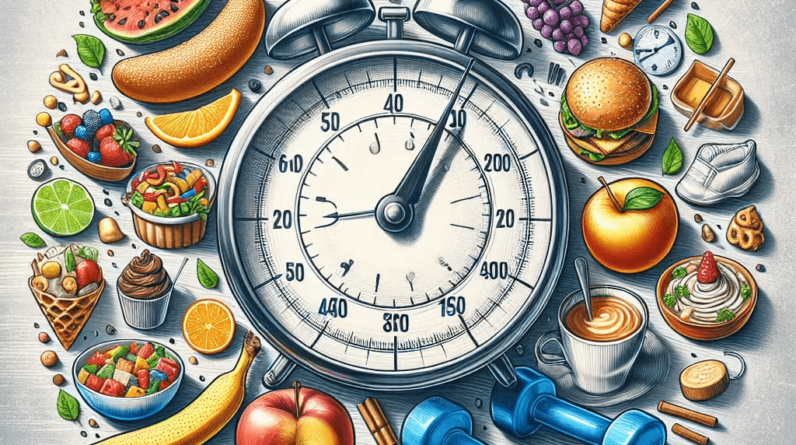
Are cheat meals ok to do?
Are you wondering how frequently you can indulge in a cheat meal without derailing your healthy eating plan? The question on many people’s minds is: How often should I have a cheat meal? It’s a common dilemma for those striving for balance between their cravings and their commitment to a nutritious lifestyle. While there is no one-size-fits-all answer, understanding the benefits and potential drawbacks of cheat meals can help you make an informed decision that works best for your body and goals.
How often should you have a cheat meal?

Factors to Consider
When it comes to determining how often you should have a cheat meal, there are several factors to consider. These factors can vary from person to person, depending on your individual goals, lifestyle, and overall health.
Understanding Cheat Meals
First, let’s define what a cheat meal actually is. A cheat meal is a planned, intentional deviation from your regular diet. It typically involves indulging in foods that are high in calories and low in nutritional value. Cheat meals are often seen as a way to satisfy cravings and provide a mental break from strict dieting.
The Benefits of Cheat Meals
While cheat meals may seem counterproductive to a healthy lifestyle, there are actually several benefits to incorporating them into your routine. One of the main benefits is that they can help to prevent feelings of deprivation and restriction. By allowing yourself to enjoy a cheat meal every now and then, you are less likely to feel like you’re missing out on certain foods or experiences.
Cheat meals can also serve as a way to boost your metabolism. When you’re in a caloric deficit for extended periods, your body can go into a state of metabolic adaptation. By consuming a higher calorie meal, you can help to “reset” your metabolism and prevent it from slowing down too much.

The Drawbacks of Cheat Meals
While cheat meals can have some benefits, it’s important to recognize the potential drawbacks as well. One of the main drawbacks is that cheat meals can easily lead to overeating. When you give yourself permission to indulge, it can be challenging to practice portion control and stop at just one meal. This can lead to consuming excessive calories, which may hinder your progress towards your goals.
Another drawback of regular cheat meals is that they can perpetuate an unhealthy relationship with food. If you find yourself constantly looking forward to your next cheat meal and feeling guilty afterwards, it may be a sign that you’re using cheat meals as a way to justify unhealthy eating habits. It’s important to approach cheat meals with a balanced mindset and avoid feelings of guilt or shame.
Listening to Your Body
When it comes to determining how often you should have a cheat meal, it’s important to listen to your body. Everyone’s nutritional needs and preferences are unique, so what may work for one person may not work for another. Pay attention to how your body responds to different types of food and adjust your cheat meal frequency accordingly.
If you find that having a cheat meal once a week leaves you feeling sluggish or negatively impacts your progress, you may want to consider reducing the frequency. On the other hand, if you find that you’re able to incorporate cheat meals without any negative effects, you may feel comfortable having them more frequently.
Determining Your Frequency
To determine your ideal cheat meal frequency, consider your overall goals, lifestyle, and current eating habits. If you’re actively trying to lose weight or improve your body composition, you may want to limit your cheat meals to once every 1-2 weeks. This allows for a balance between indulgence and discipline.
If you’re in maintenance mode and have already achieved your desired goals, you may be able to enjoy cheat meals more frequently. However, it’s still important to exercise moderation and not use cheat meals as an excuse to completely derail from your healthy eating habits.
Adapting to Your Goals
Your cheat meal frequency may also vary depending on your specific goals. If you’re an athlete or bodybuilder who is actively trying to build muscle mass, you may benefit from incorporating more frequent, structured refeed meals into your routine. These meals are similar to cheat meals but are strategically planned to provide the extra calories and nutrients needed for muscle growth and recovery.
On the other hand, if your goal is weight loss or improved overall health, you may want to focus on making healthier choices during your cheat meals. Instead of indulging in greasy fast food or sugary desserts, consider opting for healthier alternatives. For example, choose a homemade burger with lean meat and whole wheat buns, or satisfy your sweet tooth with a homemade fruit smoothie instead of a high-calorie milkshake.
Cheat Meal Strategies
To make the most of your cheat meals, it can be helpful to have a few strategies in place. One strategy is to plan your cheat meals in advance. By consciously choosing when and what you’ll indulge in, you’re less likely to give in to impulsive cravings or overdo it. Additionally, try to balance your cheat meals with healthier choices throughout the rest of the day or week. This way, you can still enjoy your indulgence without completely derailing from your overall healthy eating habits.
Another strategy is to practice mindful eating during your cheat meals. Slow down and savor each bite, paying attention to how the food makes you feel. This can help you tune into your body’s hunger and fullness cues and prevent overeating.
Making Healthy Choices
While indulging in your favorite foods every once in a while is perfectly fine, it’s still important to prioritize your health. When choosing your cheat meal options, try to opt for healthier choices whenever possible. This can include homemade versions of your favorite meals, using wholesome ingredients and cooking methods that minimize the use of unhealthy fats and excess sugar.
Additionally, consider incorporating high-quality protein, fiber, and healthy fats into your cheat meals. These nutrients can help to keep you feeling more satisfied and provide additional nutritional benefits.
Staying Consistent
Lastly, remember that consistency is key. While cheat meals can be enjoyable and provide some benefits, it’s important to stay consistent with your overall healthy eating habits. Make sure that the majority of your meals are focused on nutrient-dense foods such as fruits, vegetables, lean proteins, and whole grains. By maintaining a balanced and consistent approach to your diet, you can reap the benefits of cheat meals without sacrificing your progress or long-term health.
In conclusion, how often you should have a cheat meal ultimately depends on your individual goals, lifestyle, and preferences. Listening to your body, adapting to your goals, and practicing moderation are key factors to consider. By incorporating cheat meals strategically, making healthier choices, and staying consistent with your overall healthy eating habits, you can enjoy the benefits of indulgence while still maintaining a balanced and fulfilling lifestyle.



